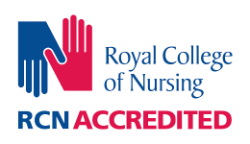
Enhanced Paediatric Nursing Skills (EPNS)
Module
- Attendance mode
- Part-time
- Start date(s)
- April
- Duration
- 4 months
- Location
- Blended learning
UK students can apply
Learning and assessment
Students will be assessed using a variety of methods, including:
- a practice-based clinical skills workbook
- a multiple-choice examination
- a reflective assignment
- assessment of practical skills
This is the current course information. Modules and course details may change, subject to the University's programme approval, monitoring and review procedures. The University reserves the right to alter or withdraw courses, services and facilities as described on our website without notice and to amend Ordinances, Regulations, fees and charges at any time. Students should enquire as to the up-to-date position when applying for their course of study.

